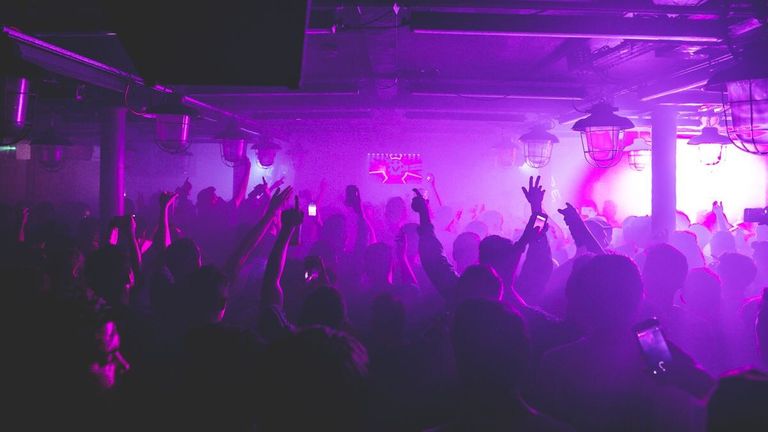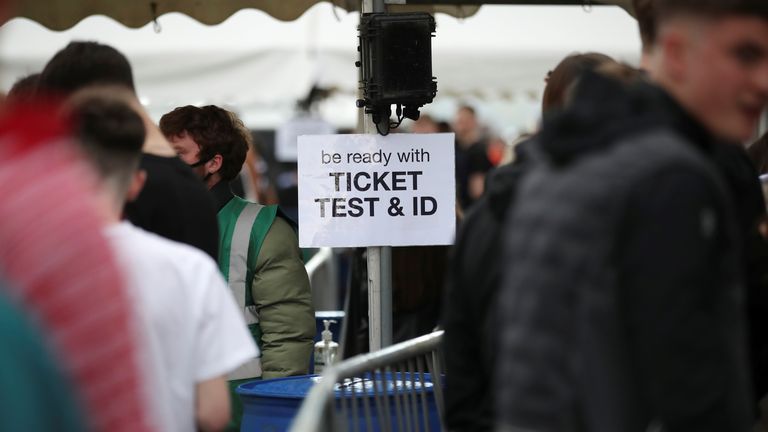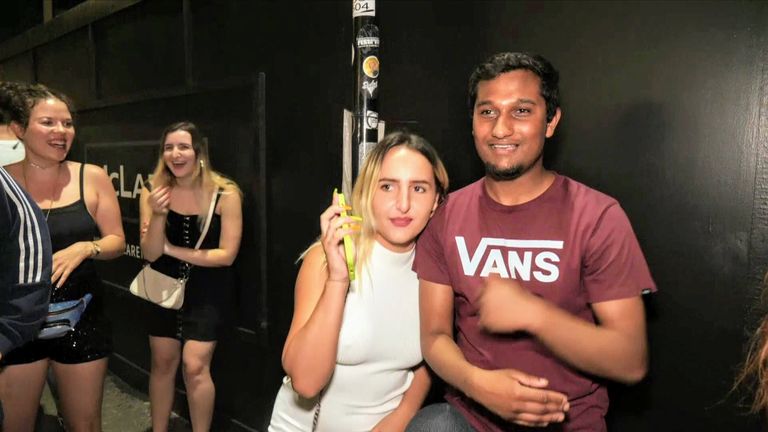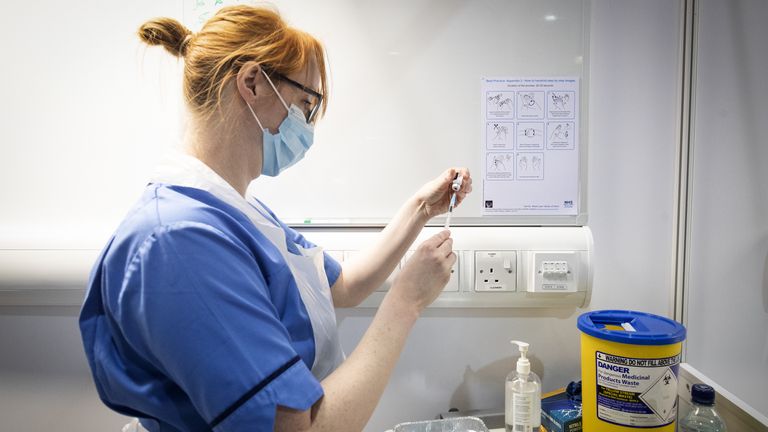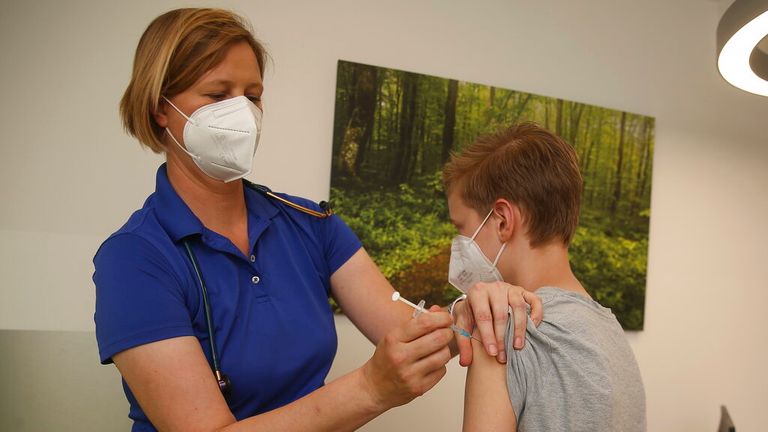PM faces backlash over decision to make people prove double vaccine status to enter nightclubs
The government’s plan to require people to prove double vaccination status when entering nightclubs and other “crowded venues” from the end of September has been condemned as an “absolute shambles”.
Boris Johnson revealed on Monday that in two months’ time, those wishing to enter venues where large numbers of people gather in England will need to have received two coronavirus jabs.
And vaccines minister Nadhim Zahawi clarified that a negative coronavirus test will “no longer be sufficient” to enter nightclubs.
Live COVID updates from the UK and around the world
But the announcement, which came 17 hours after nightclubs were able to open for the first time since March 2020, has been heavily criticised by the entertainment sector.
Michael Kill, chief executive of the Night Time Industries Association, said: “The announcement from the prime minister that COVID passports will be made mandatory for nightclubs in September comes after his health secretary said only one week ago that they would not be compulsory. What an absolute shambles.
“Leaving aside the fact that this is yet another chaotic U-turn that will leave nightclubs who have been planning for reopening for months will now have to make more changes to the way they operate – this is still a bad idea.”
Sacha Lord, night time economy adviser for Greater Manchester, said the whole industry had been “taken by surprise”.
And Peter Marks, chief executive of nightclub operator Rekom UK, told Sky News his venues “won’t be requiring” people to be double-jabbed or they “won’t have anyone in”.
“Younger guests are 95% of our customers – they won’t be fully vaccinated [by September]. We won’t be requiring them, otherwise we won’t have anyone in,” he said.
While UK music industry body LIVE said small music venues should be treated the same as similar-sized bars and restaurants.
On Monday evening the government also announced that a “very small number” of “critical workers” who are contacts of a positive coronavirus case will be exempt from self-isolation to go to work.
Speaking virtually at a Downing Street news briefing from self-isolation at Chequers, the prime minister confirmed the exemption would apply to “fully-vaccinated critical workers” including hospital and care home staff, those working in key transport roles and those involved in food production.
He added that they are only able to leave their isolation period solely for work purposes and that if they test positive they must quarantine for 10-days as normal.
Speaking in the Commons, Mr Zahawi added that members of the police will also be included.
The move, described as a “sensible and pragmatic approach” by the vaccines minister, comes as recent figures showed more than half a million people in England and Wales were “pinged” by the app in the week up to 7 July, which was an increase of almost 50% compared with the week before.
Follow the Daily podcast on Apple Podcasts, Google Podcasts, Spotify, Spreaker
But the prime minister said the NHS coronavirus app would not be fine-tuned to decrease its sensitivity despite the rising number of people isolating.
“I’m afraid that at this stage it’s simply a consequence of living with COVID and opening up when cases are high in the way that we are,” he said.
Elsewhere, the government also revealed that it will be taking up the Joint Committee on Vaccination and Immunisation’s (JVCI) recommendation that children “at an increased risk of serious COVID-19 disease” should be offered a coronavirus jab.
It means children aged between 12 and 15-years-old with severe neurodisabilities, Down’s syndrome, immunosuppression and multiple or severe learning disabilities will be offered the Pfizer-BioNTech vaccine – which has been approved for use on this age group by the Medicines and Healthcare products Regulatory Agency (MHRA).
Those children in the same age range who live with an immunosuppressed person will also be offered the vaccine, Mr Zahawi said.
But the government will not be offering all healthy teenagers a coronavirus jab at present as the JVCI is not advising it.
Newly appointed Health Secretary Sajid Javid said the JVCI will “consider whether to recommend vaccinating under-18s without underlying health conditions at a future date”.
It came as latest government figures showed the UK recorded 39,950 new COVID cases and 19 more coronavirus-related deaths in the latest 24-hour period.
Meanwhile, another 18,186 people had their first jab on Sunday, taking the UK total to 46,314,039.
And a further 128,878 had their second jab yesterday, meaning 36,099,727 are now fully vaccinated.
